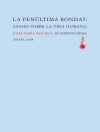This book explores new findings on the long-neglected topic of
theory construction and discovery, and challenges the orthodox, current division of scientific development into discrete stages: the stage of generation of new hypotheses; the stage of collection of relevant data; the stage of justification of possible theories; and the final stage of selection from among equally confirmed theories. The chapters, written by leading researchers, offer an interdisciplinary perspective on various aspects of the processes by which theories rationally should, and descriptively are, built. They address issues such as the role of problem-solving and heuristic reasoning in theory-building; how inferences and models shape the pursuit of scientific knowledge; the relation between problem-solving and scientific discovery; the relative values of the syntactic, semantic, and pragmatic view of theories in understanding theory construction; and the relation between ampliative inferences, heuristicreasoning, and models as a means for building new theories and knowledge. Through detailed arguments and examinations, the volume collectively challenges the orthodox view’s main tenets by characterizing the ways in which the different “stages” are logically, temporally, and psychologically intertwined. As a group, the chapters provide several attempts to answer long-standing questions about the possibility of a unified conceptual framework for building theories and formulating hypotheses.
Jadual kandungan
Building theories: The heuristic way.- Building theories: Strategies not blueprints.- Richer than reduction.- Theory building as problem solving.- Discovering cures in medicine.- The product guides the process: Discovering disease mechanisms.- Take the case of a Geometer: Mathematical analogies and building theories in Aristotle.- Activation of the eddy mental schema, multiple analogies and their heuristic cooperation in the historical development of fluid dynamics.- Heuristic logic: A kernel.- The noetic account of scientific progress and the factivity of understanding.- Rhythms, retention and protention: Philosophical reflections on geometrical schemata for biological time.












